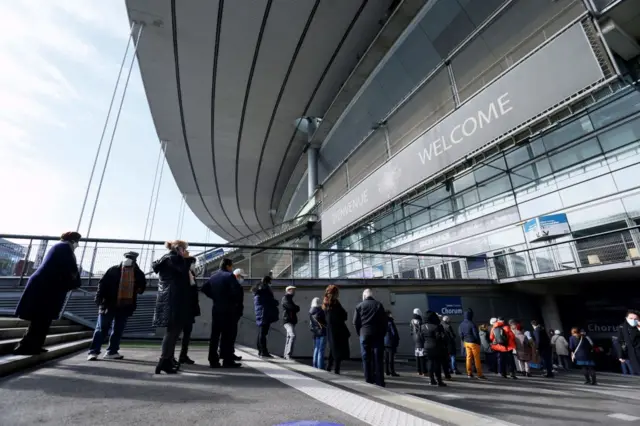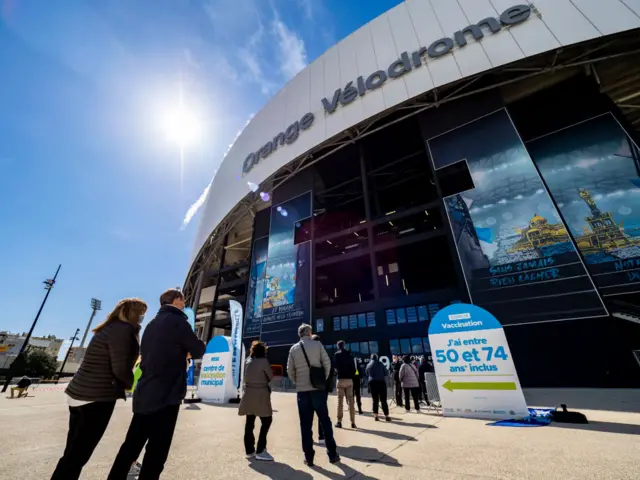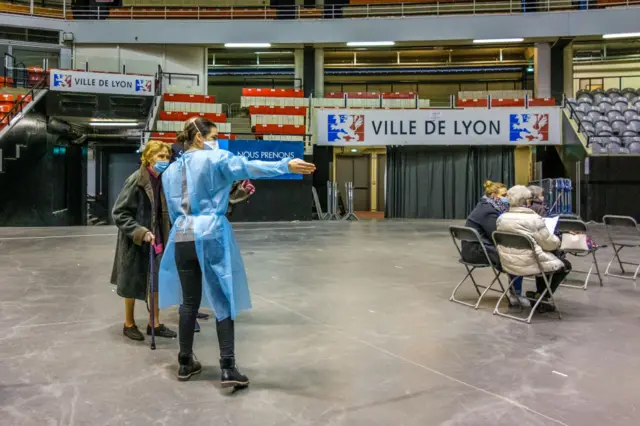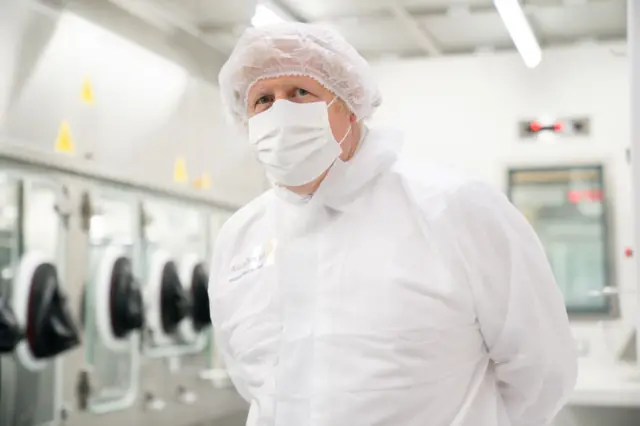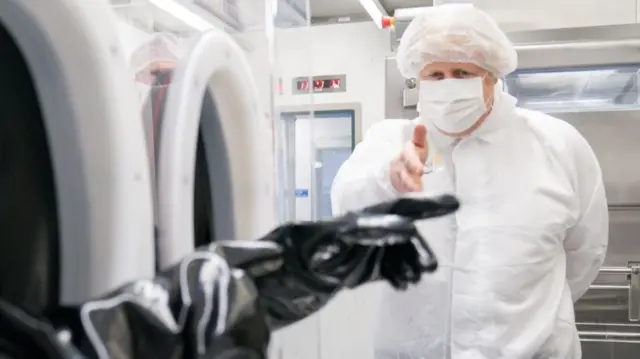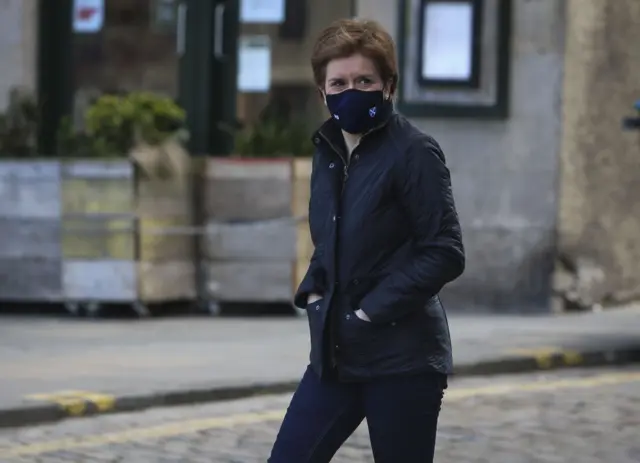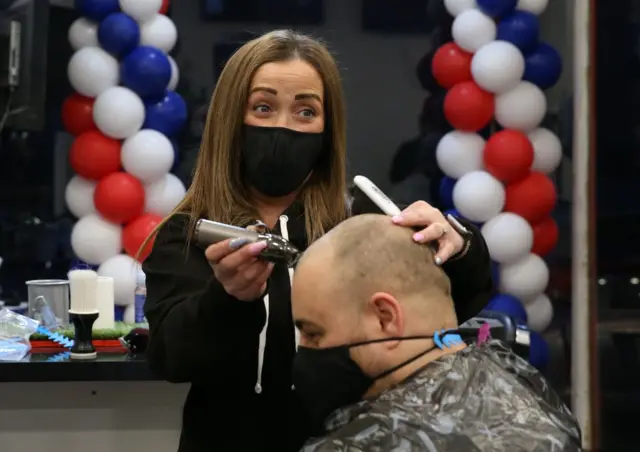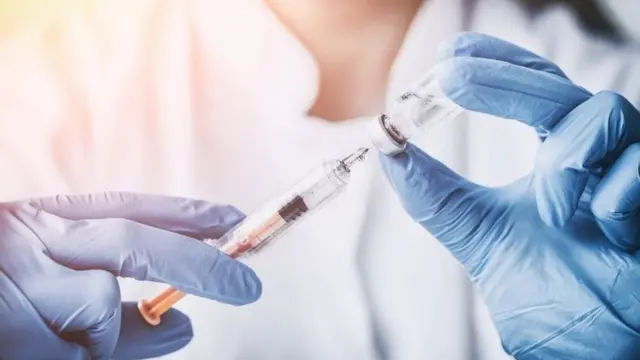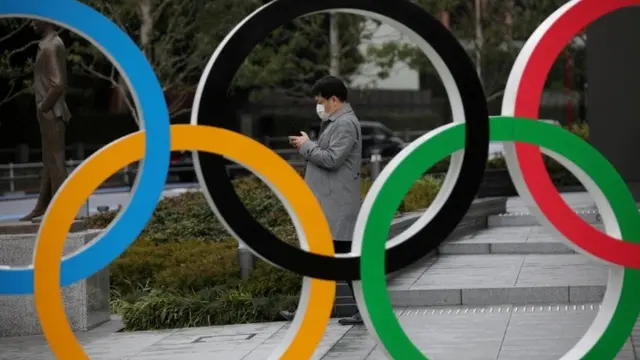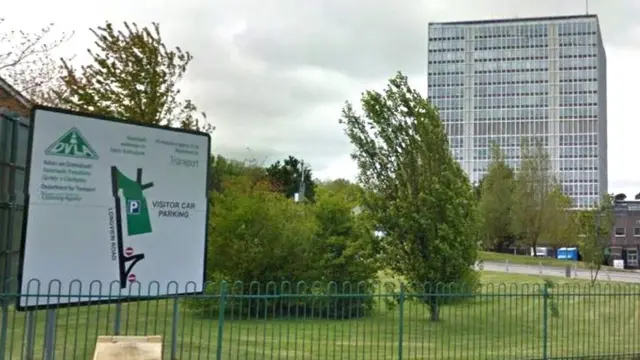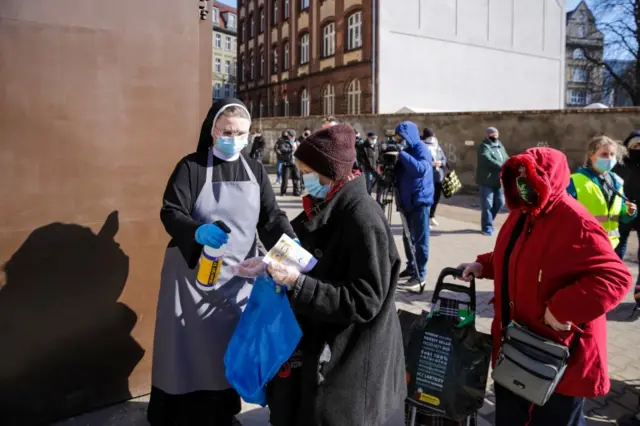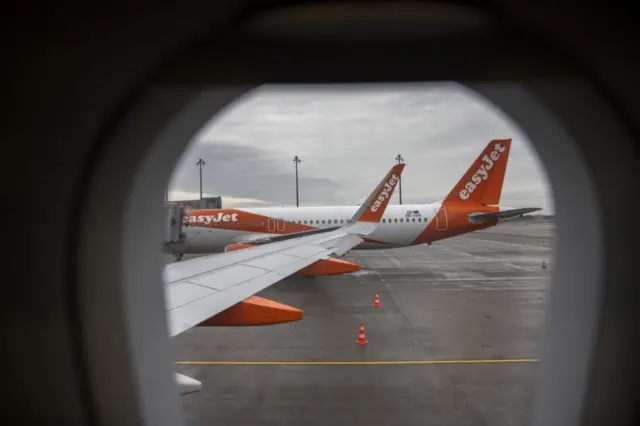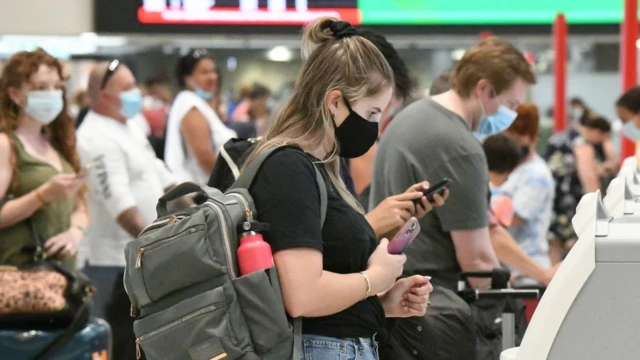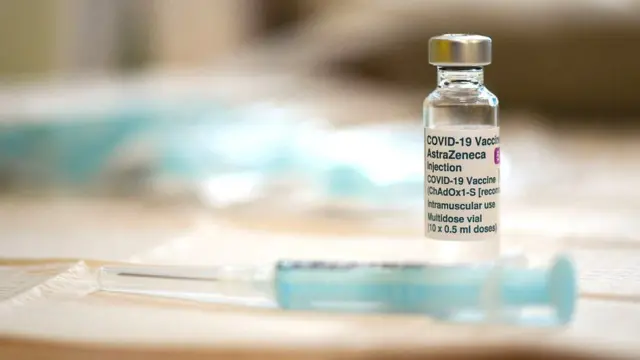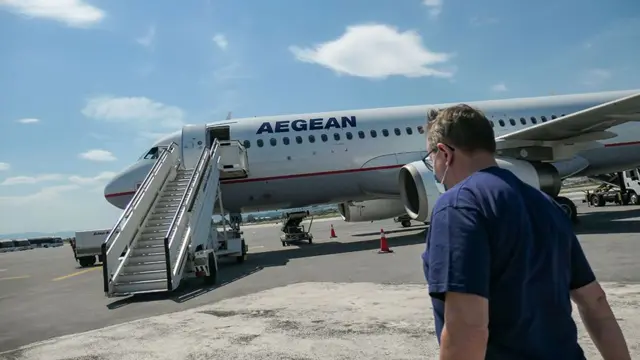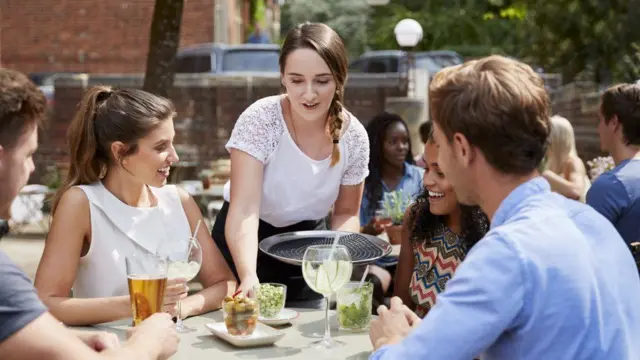PM has 'not given up' on 17 May date for holidayspublished at 13:11 BST 6 April 2021
Earlier EasyJet chief executive Johan Lundgren called for holidaymakers who return to the UK from low-risk countries to be able to take cheaper lateral flow tests rather than more expensive ones, or travel could be reopened only for "People who can afford it" - see our post at 10:51.
Asked about the issue, Boris Johnson says the government will look at the types of testing required.
"I raised that very issue myself yesterday, I do think we want to make things as easy as we possibly can," he says. "We are going to see what we can do to make things as flexible and affordable as possible."
The PM adds he does want to see international travel start up again but says "we have to be realistic, a lot of the destinations that we want to go to at the moment are suffering a new wave of the illness of Covid as we know".
"We can’t do it immediately, but that doesn’t mean that we’ve given up on 17 May," he says.
